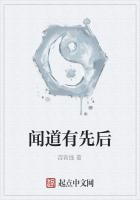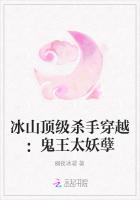J.C.'s great faults were selfishness, indolence, and love of money, and Maude's loss affected him deeply; still, there was no redress, and playfully bidding her "not to cry for the milkman's spilled milk," he left her on the very day when Dr. Kennedy returned. Maude knew J.C. was keenly disappointed; that he was hardly aware what he was saying, and she wept for him rather than for the money.
Dr. Kennedy could offer no advice--no comfort. It had always been a maxim of his not to make that man her guardian; but women would do everything wrong, and then, as if his own trials were paramount to hers, he bored her with the story of his troubles, to which she simply answered, "I am sorry;" and this was all the sympathy either gained from the other!
In the course of a few days Maude received a long letter from James De Vere. He had heard from J.C. of his misfortune, and very tenderly he strove to comfort her, touching at once upon the subject which he naturally supposed lay heaviest upon her heart. The marriage need not be postponed, he said; there was room in his house and a place in his own and his mother's affections for their "Cousin Maude." She could live there as well as not. Hampton was only half an hour's ride from Rochester, and J. G., who had been admitted at the bar, could open an office in the city until something better presented.
"Perhaps I may set him up in business myself," he wrote. "At all events, dear Maude, you need not dim the brightness of your eyes by tears, for all will yet be well. Next June shall see you a bride, unless your intended husband refuse my offer, in which case I may divine something better."
"Noble man," was Maude's exclamation, as she finished reading the letter, and if at that moment the two cousins rose up in contrast before her mind, who can blame her for awarding the preference to him who had penned those lines, and who thus kindly strove to remove from her pathway every obstacle to her happiness.
James De Vere was indeed a noble-hearted man. Generous, kind, and self-denying, he found his chief pleasure in doing others good, and he had written both to Maude and J.C. just as the great kindness of his heart had prompted him to write. He did not then know that he loved Maude Remington, for he had never fully analyzed the nature of his feelings toward her. He knew he admired her very much, and when he wrote the note J.C. withheld he said to himself, "If she answers this, I shall write again--and again, and maybe"--he did not exactly know what lay beyond the "maybe," so he added, "we shall be very good friends."
But the note was not answered, and when his cousin's letter came, telling him of the engagement, a sharp, quick pang shot through his heart, eliciting from him a faint outcry, which caused his mother, who was present, to ask what was the matter.
"Only a sudden pain," he answered, laying his hand upon his side.
"Pleurisy, perhaps," the practical mother rejoined, and supposing she was right he placed the letter in his pocket and went out into the open air. It had grown uncomfortably warm, he thought, while the noise of the falling fountain in the garden made his head ache as it had never ached before; and returning to the house he sought his pleasant library. But not a volume in all those crowded shelves had power to interest him then, and with a strange disquiet he wandered from room to room, until at last, as the sun went down, he laid his throbbing temples upon his pillow, and in his feverish dreams saw again the dark-eyed Maude sitting on her mother's grave, her face upturned to him, and on her lip the smile that formed her greatest beauty.
The next morning the headache was gone, and with a steady hand he wrote to his cousin and Maude congratulations which he believed sincere. That J.C. was not worthy of the maiden he greatly feared, and he resolved to have a care of the young man, and try to make him what Maude's husband ought to be, and when he heard of her misfortune he stepped forward with his generous offer, which J.C. instantly refused.
"He never would take his wife to live upon his relatives, he had too much pride for that, and the marriage must be deferred. A few months would make no difference. Christmas was not far from June, and by that time he could do something for himself."
Thus he wrote to James, who mused long upon the words, "A few months will make no difference," thinking within himself, "If I were like other men, and was about to marry Maude, a few months would make a good deal of difference, but everyone to their mind." Four weeks after this he went one day to Canandaigua on business, and having an hour's leisure ere the arrival of the train which would take him home he sauntered into the public parlor of the hotel. Near the window, at the farther extremity of the room, a young girl was looking out upon the passers-by. Something in her form and dress attracted his attention, and he was approaching the spot where she stood when the sound of his footsteps caught her ear, and turning round she disclosed to view the features of Maude Remington.
"Maude!" he exclaimed, "this is indeed a surprise. I must even claim a cousin's right to kiss you," and taking both her hands in his, he kissed her blushing cheek--coyly--timidly--for James De Vere was unused to such things, and not quite certain, whether under the circumstances it were perfectly proper for him to do so or not.















